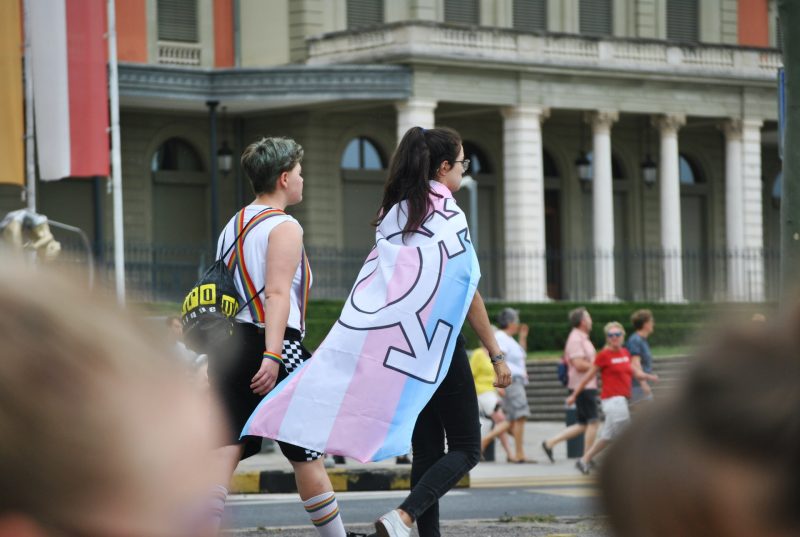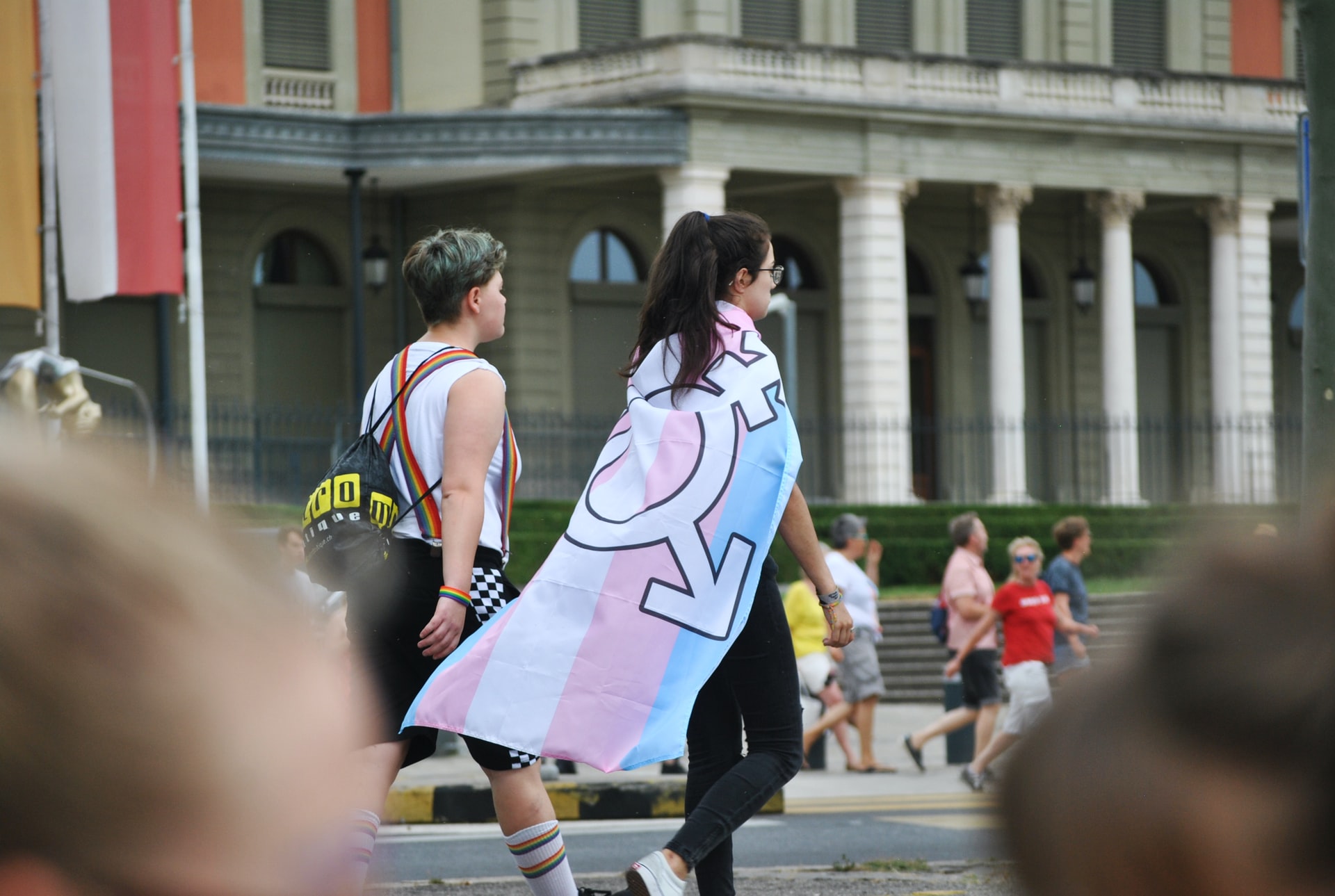
We’re here once again to talk about political differences, and how it’s one thing to disagree over certain issues and another thing when “having a different opinion” means “I don’t believe in someone’s humanity.”
And this time it’s actor Ralph Fiennes, who defended JK Rowling after the backlash on her stance on trans rights. “I can’t understand the vitriol directed at her. I find the level of hatred that people express about views that differ from theirs, and the violence of language towards others, disturbing,” he said. Interesting that he isn’t also pointing out that calling gender transition “a new kind of conversion therapy for young gay people” is violently transphobic.
However, even though this particular instance is encouraged by this actor, this topic is unfortunately evergreen. We’re always seeing people in the headlines who just don’t get it (whether in bad faith or ignorance, though the latter is more palatable), and think that fighting for your rights and fighting against people who don’t think you matter is somehow a violent thing.
There are differences that you can have fun with. You like pineapples on pizza? Cool, I don’t. Even on matters of politics and religion, you can actually have civil discussions. Do you think this issue is more important, or this solution is more practical? Do you think the peso is being devalued? Would lifting tariffs be better in the long run? Does your religion believe in reincarnation or not? Okay, got it. The important thing here is that in these differences, you can still find a middle ground.
But the moment that difference involves denying anyone’s rights, that is no longer a difference you can be civil with. Even if I don’t share your taste in media, religion or political beliefs, I can still live with you. But I cannot deal with anyone who thinks that any other human being does not deserve rights, whether it’s their very right to life or their right to express their own gender identity. There is no middle ground there. In fact, believing that somebody does not deserve their rights in itself is an inherently violent act.
Johan Galtung, a sociologist who was one of the founders of peace and conflict studies, mapped out in 1969 a triangular typology of violence: direct, cultural and structural. These three types often lead into and support each other: cultural violence, which are the beliefs embedded in society that allow and necessitate any form of violence against another human being, will directly lead into structural violence, in which people in power can institutionalize that a certain type of person or groups of people will not have access to, at the very least, fundamental goods.
Direct violence, meanwhile, might sound a bit misleading. It doesn’t just mean direct as a physical act of hurting somebody, like punching another person. Galthung describes it as an “avoidable impairment of fundamental human needs or life which makes it impossible or difficult for people to meet their needs or achieve their full potential.” Using your large platform to advocate for TERF (trans-exclusionary radical feminist) talking points and portray trans women as violent crossdressing men who will take advantage of other women? That’s an example of how cultural and direct violence can intersect.
You can’t say that “I don’t think trans women are women or trans men are men” is just a matter of opinion when that way of thinking has directly led to trans folk being deprived of their rights to health care, to housing, to employment. In the worst-but-far-too-often cases, it has also meant trans people losing their lives.
BTW, this isn’t just limited to trans rights, even if that’s what’s zeroing in on now. If you think activists deserve to die because they’re fighting for a cause you don’t believe in, or that killing journalists, doctors and other workers because of their profession are in any way permissible, then you’re talking violence.
So how are people supposed to react to this violence? Act gently, take it in and continue to patiently smile at people sharing bad faith arguments? While some people have the capacity to do that, most won’t. And if you’re faced with all kinds of violence at every turn, it’s only natural for a person to fight back, especially when they have no way out. (This is a conversation for another time, but this is why many insurgency groups start out in the first place. They’re not pointlessly picking fights. They’re tired, underprivileged people who have had enough.)
To paraphrase what philosopher Alain Badiou said, there is no measure between the language of philosophy and the language of violence. There is no real way to respond to violence in a philosophical, artful way because violence has its own vocabulary. Violence makes itself the be all and end all. There is no middle ground.
And so when it comes to transphobia, there is no neutrality. It’s transphobia versus no transphobia. That doesn’t mean that everyone who believes in trans rights believes in the same exact things. Even within trans circles, there are nuances and differing opinions on what goals we need to achieve and how to do it.
You don’t have to scream down anyone who thinks differently. Sometimes, people are just ignorant and they need time to figure it out. But if they persist in spouting transphobia while sharing bad faith arguments and questions, they’re not genuinely asking for a civil discussion. They’re actively trying to wear you down.
Let’s go back to Fiennes and Rowling. Even though I mentioned that it’s natural for people to fight back against violence with violence if they see no other way out, that’s not what happened here. What form of violence did Rowling face? Having people rightly call her a TERF? Having a mountain of trans folk, as well as progressive allies from different sectors, inform her of their own lived experiences and correct her misinformation? When has correcting information that is provably false been an act of violence?
Or is the mere fact that an underprivileged group of people are rising up and supporting each other threatening enough?
Photo by Delia Giandeini on Unsplash
Follow Preen on Facebook, Instagram, Twitter, YouTube and Viber
Related Stories:
6 trans and nonbinary professionals on navigating the working world
Here’s why nonbinary doesn’t mean androgynous for these nonbinary BFFs
How a docu on a Muslim trans official helped lobby for anti-discrimination
No, AFP, the SOGIE bill does not grant ‘special privileges


